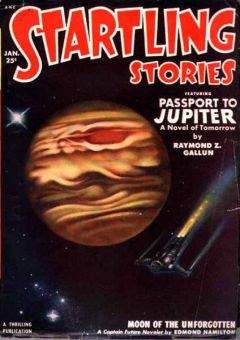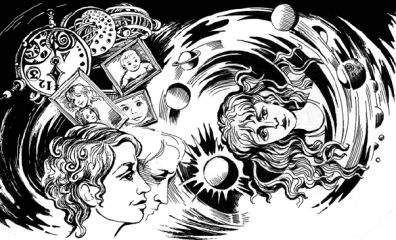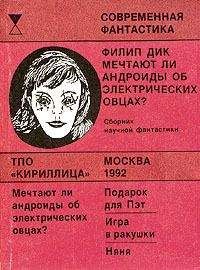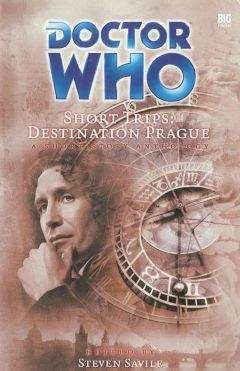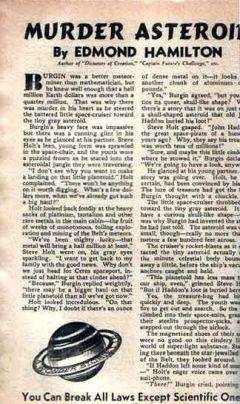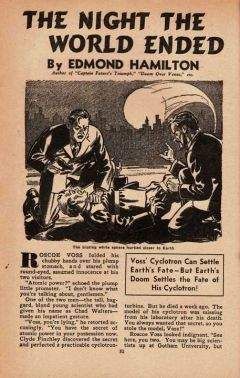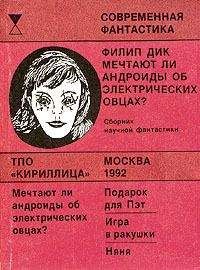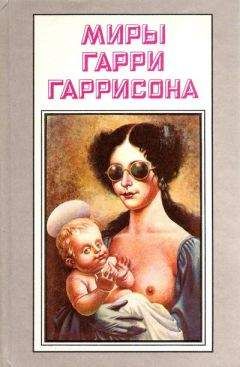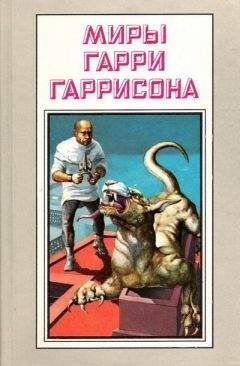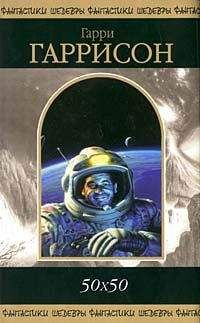Somerset Maugham - Sixty-Five Short Stories
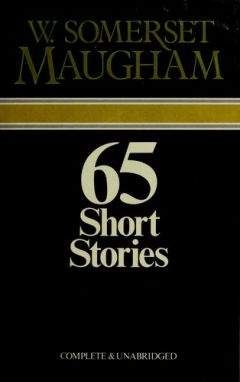
Скачивание начинается... Если скачивание не началось автоматически, пожалуйста нажмите на эту ссылку.
Жалоба
Напишите нам, и мы в срочном порядке примем меры.
Описание книги "Sixty-Five Short Stories"
Описание и краткое содержание "Sixty-Five Short Stories" читать бесплатно онлайн.
'I think it more better if we walk here, sir,' he said.
They got out and he went on. They followed a step or two behind. Then he asked them to stop.
'You wait here, sir. I go in and speak to my fliend.'
He went into a shop, open to the street, where three or four Chinese were standing behind the counter. It was one of those strange shops where nothing was on view, and you wondered what it was they sold there. They saw him address a stout man in a duck suit with a large gold chain across his breast, and the man shot a quick glance out into the night. He gave Chi Seng a key and Chi Seng came out. He beckoned to the two men waiting and slid into a doorway at the side of the shop. They followed him and found themselves at the foot of a flight of stairs.
'If you wait a minute I will light a match,' he said, always resourceful. 'You come upstairs, please.'
He held a Japanese match in front of them, but it scarcely dispelled the darkness and they groped their way up behind him. On the first floor he unlocked a door and going in lit a gas-jet.
'Come in, please,' he said.
It was a small square room, with one window, and the only furniture consisted of two low Chinese beds covered with matting. In one corner was a large chest, with an elaborate lock, and on this stood a shabby tray with an opium pipe on it and a lamp. There was in the room the faint, acrid scent of the drug. They sat down and Ong Chi Seng offered them cigarettes. In a moment the door was opened by the fat Chinaman whom they had seen behind the counter. He bade them good evening in very good English, and sat down by the side of his fellow-countryman.
'The Chinese woman is just coming,' said Chi Seng.
A boy from the shop brought in a tray with a teapot and cups and the Chinaman offered them a cup of tea. Crosbie refused. The Chinese talked to one another in undertones, but Crosbie and Mr Joyce were silent. At last there was the sound of a voice outside; someone was calling in a low tone; and the Chinaman went to the door. He opened it, spoke a few words, and ushered a woman in. Mr Joyce looked at her. He had heard much about her since Hammond's death, but he had never seen her. She was a stoutish person, not very young, with a broad, phlegmatic face, she was powdered and rouged and her eyebrows were a thin black line, but she gave you the impression of a woman of character. She wore a pale blue jacket and a white skirt, her costume was not quite European nor quite Chinese, but on her feet were little Chinese silk slippers. She wore heavy gold chains round her neck, gold bangles on her wrists, gold ear-rings, and elaborate gold pins in her black hair. She walked in slowly, with the air of a woman sure of herself, but with a certain heaviness of tread, and sat down on the bed beside Ong Chi Seng. He said something to her and nodding she gave an incurious glance at the two white men.
'Has she got the letter?' asked Mr Joyce.
'Yes, sir.'
Crosbie said nothing, but produced a roll of five-hundred-dollar notes. He counted out twenty and handed them to Chi Seng.
'Will you see if that is correct?'
The clerk counted them and gave them to the fat Chinaman.
'Quite correct, sir.'
The Chinaman counted them once more and put them in his pocket. He spoke again to the woman and she drew from her bosom a letter. She gave it to Chi Seng who cast his eyes over it.
'This is the right document, sir,' he said, and was about to give it to Mr Joyce when Crosbie took it from him.
'Let me look at it,' he said.
Mr Joyce watched him read and then held out his hand for it.
'You'd better let me have it.'
Crosbie folded it up deliberately and put it in his pocket.
'No, I'm going to keep it myself. It's cost me enough money.'
Mr Joyce made no rejoinder. The three Chinese watched the little passage, but what they thought about it, or whether they thought, it was impossible to tell from their impassive countenances. Mr Joyce rose to his feet.
'Do you want me any more tonight, sir?' said Ong Chi Seng.
'No.' He knew that the clerk wished to stay behind in order to get his agreed share of the money, and he turned to Crosbie. 'Are you ready?'
Crosbie did not answer, but stood up. The Chinaman went to the door and opened it for them. Chi Seng found a bit of candle and lit it in order to light them down, and the two Chinese accompanied them to the street. They left the woman sitting quietly on the bed smoking a cigarette. When they reached the street the Chinese left them and went once more upstairs.
'What are you going to do with that letter?' asked Mr Joyce.
'Keep it.'
They walked to where the car was waiting for them and here Mr Joyce offered his friend a lift. Crosbie shook his head.
'I'm going to walk.' He hesitated a little and shuffled his feet. 'I went to Singapore on the night of Hammond's death partly to buy a new gun that a man I knew wanted to dispose of. Good night.'
He disappeared quickly into the darkness.
Mr Joyce was quite right about the trial. The assessors went into court fully determined to acquit Mrs Crosbie. She gave evidence on her own behalf. She told her story simply and with straightforwardness. The D.P.P. was a kindly man and it was plain that he took no great pleasure in his task. He asked the necessary questions in a deprecating manner. His speech for the prosecution might really have been a speech for the defence, and the assessors took less than five minutes to consider their popular verdict. It was impossible to prevent the great outburst of applause with which it was received by the crowd that packed the courthouse. The judge congratulated Mrs Crosbie and she was a free woman.
No one had expressed a more violent disapprobation of Hammond's behaviour than Mrs Joyce; she was a woman loyal to her friends and she had insisted on the Crosbies staying with her after the trial, for she in common with everyone else had no doubt of the result, till they could make arrangements to go away. It was out of the question for poor, dear, brave Leslie to return to the bungalow at which the horrible catastrophe had taken place.
The trial was over by half past twelve and when they reached the Joyces' house a grand luncheon was awaiting them. Cocktails were ready, Mrs Joyce's million-dollar cocktail was celebrated through all the Malay States, and Mrs Joyce drank Leslie's health. She was a talkative, vivacious woman, and now she was in the highest spirits. It was fortunate, for the rest of them were silent. She did not wonder; her husband never had much to say, and the other two were naturally exhausted from the long strain to which they had been subjected. During luncheon she carried on a bright and spirited monologue. Then coffee was served.
'Now, children,' she said in her gay, bustling fashion, 'you must have a rest and after tea I shall take you both for a drive to the sea.'
Mr Joyce, who lunched at home only by exception, had of course to go back to his office.
'I'm afraid I can't do that, Mrs Joyce,' said Crosbie. 'I've got to get back to the estate at once.'
'Not today?' she cried.
'Yes, now. I've neglected it for too long and I have urgent business. But I shall be very grateful if you will keep Leslie until we have decided what to do.' Mrs Joyce was about to expostulate, but her husband prevented her. 'If he must go, he must, and there's an end of it.'
There was something in the lawyer's tone which made her look at him quickly. She held her tongue and there was a moment's silence. Then Crosbie spoke again.
'If you'll forgive me, I'll start at once so that I can get there before dark.' He rose from the table. 'Will you come and see me off, Leslie?'
'Of course.'
They went out of the dining-room together.
'I think that's rather inconsiderate of him,' said Mrs Joyce. 'He must know that Leslie wants to be with him just now.'
'I'm sure he wouldn't go if it wasn't absolutely necessary.'
'Well, I'll just see that Leslie's room is ready for her. She wants a complete rest, of course, and then amusement.'
Mrs Joyce left the room and Joyce sat down again. In a short time he heard Crosbie start the engine of his motor-cycle and then noisily scrunch over the gravel of the garden path. He got up and went into the drawing-room. Mrs Crosbie was standing in the middle of it, looking into space, and in her hand was an open letter. He recognized it. She gave him a glance as he came in and he saw that she was deathly pale.
'He knows,' she whispered.
Mr Joyce went up to her and took the letter from her hand. He lit a match and set the paper afire. She watched it burn. When he could hold it no longer he dropped it on the tiled floor and they both looked at the paper curl and blacken. Then he trod it into ashes with his foot.
'What does he know?'
She gave him a long, long stare and into her eyes came a strange look. Was it contempt or despair? Mr Joyce could not tell.
'He knows that Geoff was my lover.'
Mr Joyce made no movement and uttered no sound.
'He'd been my lover for years. He became my lover almost immediately after he came back from the war. We knew how careful we must be. When we became lovers I pretended I was tired of him, and he seldom came to the house when Robert was there. I used to drive out to a place we knew and he met me, two or three times a week, and when Robert went to Singapore he used to come to the bungalow late, when the boys had gone for the night. We saw one another constantly, all the time, and not a soul had the smallest suspicion of it. And then lately, a year ago, he began to change. I didn't know what was the matter. I couldn't believe that he didn't care for me any more. He always denied it. I was frantic. I made him scenes. Sometimes I thought he hated me. Oh, if you knew what agonies I endured. I passed through hell. I knew he didn't want me any more and I wouldn't let him go. Misery! Misery! I loved him. I'd given him everything. He was my life. And then I heard he was living with a Chinese woman. I couldn't believe it. I wouldn't believe it. At last I saw her, I saw her with my own eyes, walking in the village, with her gold bracelets and her necklaces, an old, fat Chinese woman. She was older than I was. Horrible! They all knew in the kampong that she was his mistress. And when I passed her, she looked at me and I knew that she knew I was his mistress too. I sent for him. I told him I must see him. You've read the letter. I was mad to write it. I didn't know what I was doing. I didn't care. I hadn't seen him for ten days. It was a lifetime. And when last we'd parted he took me in his arms and kissed me, and told me not to worry. And he went straight from my arms to hers.'
She had been speaking in a low voice, vehemently, and now she stopped and wrung her hands.
'That damned letter. We'd always been so careful. He always tore up any word I wrote to him the moment he'd read it. How was I to know he'd leave that one? He came, and I told him I knew about the Chinawoman. He denied it. He said it was only scandal. I was beside myself. I don't know what I said to him. Oh, I hated him then. I tore him limb from limb. I said everything I could to wound him. I insulted him. I could have spat in his face. And at last he turned on me. He told me he was sick and tired of me and never wanted to see me again. He said I bored him to death. And then he acknowledged that it was true about the Chinawoman. He said he'd known her for years, before the war, and she was the only woman who really meant anything to him, and the rest was just pastime. And he said he was glad I knew and now at last I'd leave him alone. And then I don't know what happened, I was beside myself, I saw red. I seized the revolver and I fired. He gave a cry and I saw I'd hit him. He staggered and rushed for the veranda. I ran after him and fired again. He fell and then I stood over him and I fired till the revolver went click, click, and I knew there were no more cartridges.'
At last she stopped, panting. Her face was no longer human, it was distorted with cruelty, and rage and pain. You would never have thought that this quiet, refined woman was capable of such fiendish passion. Mr Joyce took a step backwards. He was absolutely aghast at the sight of her. It was not a face, it was a gibbering, hideous mask. Then they heard a voice calling from another room, a loud, friendly, cheerful voice. It was Mrs Joyce.
'Come along, Leslie darling, your room's ready. You must be dropping with sleep.'
Mrs Crosbie's features gradually composed themselves. Those passions, so clearly delineated, were smoothed away as with your hand you would smooth crumpled paper, and in a minute the face was cool and calm and unlined. She was a trifle pale, but her lips broke into a pleasant, affable smile. She was once more the well-bred and even distinguished woman.
'I'm coming, Dorothy dear. I'm sorry to give you so much trouble.'
The Portrait of a Gentleman
I arrived in Seoul towards evening and after dinner, tired by the long railway journey from Peking, to stretch my cramped legs I went for a walk. I wandered at random along a narrow and busy street. The Koreans in their long white gowns and their little white top-hats were amusing to look at and the open shops displayed wares that arrested my foreign eyes. Presently I came to a second-hand bookseller's and catching sight of shelves filled with English books went in to have a look at them. I glanced at the titles and my heart sank. They were commentaries on the Old Testament, treatises on the Epistles of St Paul, sermons and lives of divines doubtless eminent, but whose names were unfamiliar to me; I am an ignorant person. I supposed that this was the library of some missionary whom death had claimed in the midst of his labours and whose books then had been purchased by a Japanese bookseller. The Japanese are astute, but I could not imagine who in Seoul would be found to buy a work in three volumes on the Epistle to the Corinthians. But as I was turning away, between volume two and volume three of this treatise I noticed a little book bound in paper. I do not know what induced me to take it out. It was called The Complete Poker Player and its cover was illustrated with a hand holding four aces. I looked at the title-page. The author was Mr John Blackbridge, actuary and counsellor-at-law, and the preface was dated 1879. I wondered how this work happened to be among the books of a deceased missionary and I looked in one or two of them to see if I could find his name. Perhaps it was there only by accident. It may be that it was the entire library of a stranded gambler and had found its way to those shelves when his effects were sold to pay his hotel bill. But I preferred to think that it was indeed the property of the missionary and that when he was weary of reading divinity he rested his mind by the perusal of these lively pages. Perhaps somewhere in Korea, at night and alone in his mission-house, he dealt innumerable poker hands in order to see for himself whether you could really only get a straight flush once in sixty-five thousand hands. But the owner of the shop was looking at me with disfavour so I turned to him and asked the price of the book. He gave it a contemptuous glance and told me I could have it for twenty sen. I put it in my pocket.
I do not remember that for so small a sum I have ever purchased better entertainment. For Mr John Blackbridge in these pages of his did a thing no writer can do who deliberately tries to, but that, if done unconsciously, gives a book a rare and precious savour; he painted a complete portrait of himself. He stands before the reader so vividly that I was convinced that a wood-cut of him figured as a frontispiece and I was surprised to discover, on looking at the book again the other day, that there was nothing of the kind. I see him very distinctly as a man of middle-age, in a black frockcoat and a chimney-pot hat, wearing a black satin stock; he is clean-shaven and his jaw is square; his lips are thin and his eyes wary; his face is sallow and somewhat wrinkled. It is a countenance not without severity, but when he tells a story or makes one of his dry jokes his eyes light up and his smile is winning. He enjoyed his bottle of Burgundy, but I cannot believe that he ever drank enough to confuse his excellent faculties. He was just rather than merciful at the card-table and he was prepared to punish presumption with rigour. He had few illusions, for here are some of the things that life had taught him: 'Men hate those whom they have injured; men love those whom they have benefited; men naturally avoid their benefactors; men are universally actuated by self-interest; gratitude is a lively sense of expected benefits; promises are never forgotten by those to whom they are made, usually by those who make them.'
Подписывайтесь на наши страницы в социальных сетях.
Будьте в курсе последних книжных новинок, комментируйте, обсуждайте. Мы ждём Вас!
Похожие книги на "Sixty-Five Short Stories"
Книги похожие на "Sixty-Five Short Stories" читать онлайн или скачать бесплатно полные версии.
Мы рекомендуем Вам зарегистрироваться либо войти на сайт под своим именем.
Отзывы о "Somerset Maugham - Sixty-Five Short Stories"
Отзывы читателей о книге "Sixty-Five Short Stories", комментарии и мнения людей о произведении.





